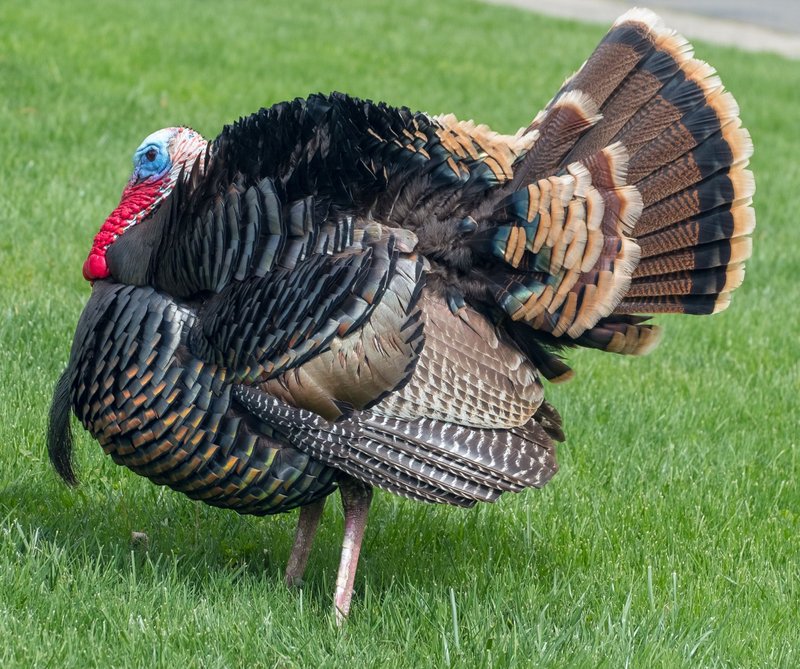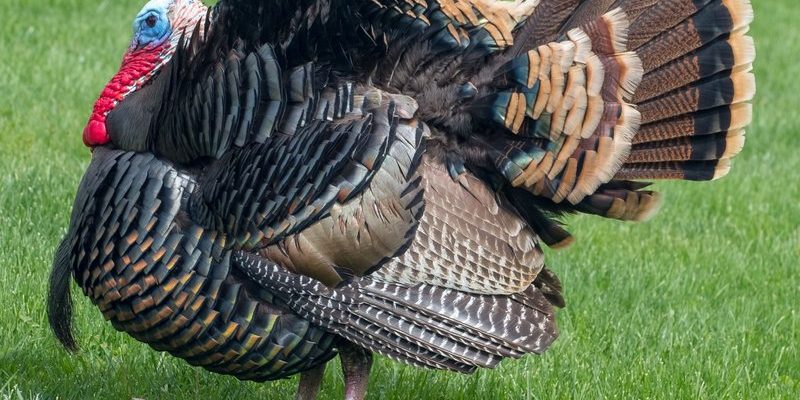
Understanding the Turkey Vulture
Turkey vultures are fascinating birds that stand out with their dark, almost black plumage and distinctive bald heads. They have keen eyesight and a great sense of smell, which help them locate carrion, their main food source. Imagine being able to spot a meal from miles away without having to hunt! These birds are integral to the ecosystem because they help decompose dead animals, preventing the spread of disease.
Their range extends across much of North and South America. You might see them soaring in circles above fields or roads, where they’re on the lookout for their next meal. This unique ability to soar without flapping their wings often makes them a thrilling sight for bird watchers and outdoor enthusiasts alike.
But there’s more to turkey vultures than meets the eye. They have some interesting behaviors and adaptations. For example, their bald heads help them stay clean and hygienic when feeding. Unlike birds with feathers, a bald head is less likely to get soiled by blood or decay. Quite clever, right?
Are Turkey Vultures Endangered?
Now, let’s tackle the big question: are turkey vultures endangered? Currently, they are not classified as endangered; in fact, according to the IUCN (International Union for Conservation of Nature), they fall under the category of “Least Concern.” This means that their population is relatively stable. However, that doesn’t mean they’re completely out of the woods.
The turkey vulture population does face threats, particularly from habitat destruction and poisoning. Urban development and agriculture can take away their natural habitats, while the use of certain pesticides can inadvertently poison them. Remember, these birds are scavengers; they might consume animals that have been exposed to toxins, which can lead to serious health issues.
To get a better picture, it’s helpful to consider some numbers. In some regions, their populations have seen slight declines due to the aforementioned threats. That’s why conservationists continue to monitor their status closely. Even if they aren’t endangered right now, we must remain vigilant to ensure they don’t slip into that category in the future.
The Role of Conservation Efforts
Conservation efforts play a crucial part in protecting turkey vultures and their habitats. Organizations across the globe are working hard to raise awareness about these birds and create policies to safeguard their environments. Here’s what’s going on in the world of conservation:
– **Habitat Protection**: Many programs focus on preserving the natural habitats where turkey vultures live and thrive. This includes protecting open fields and forests that offer food sources and nesting sites.
– **Public Awareness Campaigns**: Educating the public about the importance of vultures helps foster a positive image. Many people associate vultures with death, but they are essential for a healthy ecosystem. Campaigns aim to shift this perception.
– **Legislation**: Various laws protect migratory birds, including turkey vultures. These legal frameworks help ensure that their habitats are not destroyed and that they are not hunted or harmed.
These efforts are crucial because they help address the root causes of population decline. It’s a bit like fixing the roof before a storm hits; without those protective measures, the turkey vultures could find themselves in a precarious situation.
Impact of Environmental Changes
Environmental changes significantly affect turkey vultures, just like many other species. Climate change is perhaps the most pressing issue, impacting both their food sources and habitats. Here’s how:
– **Shifts in Food Availability**: As climate patterns change, so do the migrations and populations of other animals. This can lead to fewer carrion available for turkey vultures, making it harder for them to find food.
– **Altered Habitats**: Rising temperatures, droughts, or floods can change the landscapes where these birds thrive. For instance, if forests or wetlands are compromised, vultures may struggle to find suitable nesting sites.
– **Toxicity Issues**: Climate change can also exacerbate the presence of harmful substances in the environment. Changes in temperature can increase the prevalence of certain diseases or toxins in dead animals that vultures might consume.
It’s essential to understand these environmental factors because they demonstrate how interconnected our ecosystems are. Protecting turkey vultures means addressing broader issues like climate change and habitat conservation.
How You Can Help
You might be wondering, “What can I do to help turkey vultures?” The good news is there’s plenty you can do! Here are some actionable steps:
- Support Conservation Organizations: Join or donate to organizations that focus on bird conservation. Many groups work tirelessly to protect vultures and their habitats.
- Educate Others: Share your knowledge about turkey vultures. The more people understand their importance, the more support we can gather for their protection.
- Practice Responsible Use of Chemicals: If you use pesticides or chemicals in your garden or yard, consider eco-friendly alternatives. This will help reduce the risk of poisoning local wildlife.
- Participate in Citizen Science: Join local bird counts or monitoring programs. Your observations can help scientists track vulture populations and health.
Every little bit helps. By becoming an advocate for turkey vultures, you contribute to the broader conservation efforts that benefit not only these birds but many other wildlife species too.
The Future of Turkey Vultures
Looking ahead, the future of turkey vultures will depend on our actions today. Their current status as “Least Concern” is reassuring, but it doesn’t mean we can be complacent. Ongoing monitoring, protective legislation, and public support will be crucial in the years to come.
Research is also vital. Scientists continue to study turkey vultures to learn more about their behavior, health, and population dynamics. Understanding their needs better will help shape effective conservation strategies.
While challenges lie ahead, there’s hope. By coming together as a community and fostering a love for these remarkable birds, we can create a better environment for turkey vultures and all wildlife. Remember, when we protect one species, we often help countless others along the way.
In conclusion, turkey vultures are not endangered, but their future is in our hands. By understanding their role in the ecosystem and the threats they face, we can contribute positively to their conservation. So, the next time you spot one soaring in the sky, take a moment to appreciate just how important these birds are to our world. Let’s work together to ensure they continue to thrive.

